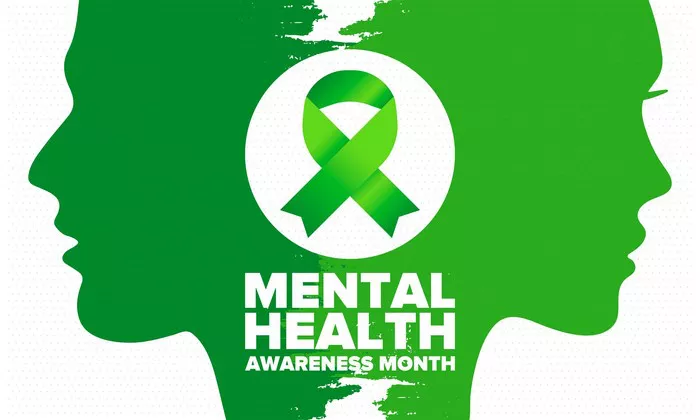In the realm of mental health, understanding the nuances and distinctions between various conditions is crucial for accurate diagnosis and effective treatment. Two conditions that often prompt questions regarding their overlap and differentiation are Narcissistic Personality Disorder (NPD) and Bipolar Disorder. While both can manifest with overlapping symptoms, they are distinct in their underlying causes, treatment approaches, and implications for individuals’ lives.
1. Introduction to NPD and Bipolar Disorder
Narcissistic Personality Disorder (NPD) is characterized by a pervasive pattern of grandiosity, a constant need for admiration, and a lack of empathy for others. Individuals with NPD often exhibit a sense of entitlement, a tendency to exploit others for their own gain, and a belief in their superiority over others. On the other hand, Bipolar Disorder is a mood disorder marked by extreme fluctuations in mood, energy levels, and behavior. It typically involves episodes of mania or hypomania, characterized by elevated mood and increased activity, as well as episodes of depression, marked by feelings of sadness, hopelessness, and low energy.
2. Acknowledging the Complex Relationship
Overlap in Symptoms: There can be overlap in symptoms between NPD and Bipolar Disorder, which can complicate diagnosis and treatment. Both conditions may involve mood swings, impulsivity, and inflated self-importance. However, it’s essential to recognize that these symptoms manifest differently in each condition and are rooted in distinct underlying mechanisms.
Distinct Conditions: Despite the potential for overlapping symptoms, NPD and Bipolar Disorder are distinct conditions with unique diagnostic criteria and treatment approaches. While individuals with NPD may experience mood fluctuations, these are typically in response to perceived threats to their self-esteem or self-image, rather than the cyclical patterns seen in Bipolar Disorder.
3. Highlighting Key Differences
Focus on Cause: NPD is considered a personality disorder, characterized by enduring patterns of behavior and inner experience that deviate from societal norms. The underlying causes of NPD are complex and may involve a combination of genetic, environmental, and psychological factors. In contrast, Bipolar Disorder is primarily a mood disorder, believed to be influenced by genetic predispositions, neurotransmitter imbalances, and life stressors.
Treatment Approaches: Treatment for NPD often involves psychotherapy aimed at addressing underlying psychological issues and promoting healthier ways of relating to oneself and others. In contrast, Bipolar Disorder is typically managed with a combination of medication, such as mood stabilizers or antipsychotics, and psychotherapy to help individuals manage symptoms and stabilize mood fluctuations.
4. Avoiding Misinformation and Stigma
Emphasize Nuance: It’s important to avoid oversimplifying or generalizing either condition, as both NPD and Bipolar Disorder are complex and multifaceted. Individuals with NPD or Bipolar Disorder deserve understanding and support, rather than judgment or stigma.
Promote Understanding: By increasing awareness and understanding of these conditions, we can foster empathy and compassion for those who struggle with them. Education is key to reducing stigma and encouraging individuals to seek help without fear of judgment.
5. Providing Resources for Further Exploration
Reputable Sources: For those seeking further information on NPD and Bipolar Disorder, reputable sources such as the American Psychiatric Association (APA), the National Alliance on Mental Illness (NAMI), and the Mayo Clinic offer valuable insights and resources.
Professional Help: If you or someone you know is experiencing symptoms of either NPD or Bipolar Disorder, it’s important to seek professional evaluation and support. Qualified mental health professionals can provide accurate diagnosis and personalized treatment recommendations tailored to individual needs.
Conclusion
In conclusion, navigating the complexities of mental health involves understanding the nuances and distinctions between conditions like Narcissistic Personality Disorder and Bipolar Disorder. By promoting awareness, empathy, and access to resources, we can support individuals in their journey toward mental wellness and recovery.
FAQs
1. What mental illnesses do narcissists have?
Narcissists often exhibit traits of Narcissistic Personality Disorder (NPD), characterized by a pervasive pattern of grandiosity, a need for admiration, and a lack of empathy. However, not all narcissists meet the clinical criteria for NPD, and their behavior can also be influenced by other factors.
2. What personality types are the most narcissistic?
Research suggests that individuals with certain personality traits, such as high levels of extraversion and low levels of agreeableness and conscientiousness, are more likely to display narcissistic tendencies. However, it’s important to note that narcissism exists on a spectrum, and various personality types can exhibit narcissistic traits to varying degrees.
3. What is the one question to identify a narcissist?
While there’s no single question that can definitively identify a narcissist, asking about empathy can provide valuable insights. Narcissists often lack empathy and may struggle to understand or acknowledge the feelings and perspectives of others. So, questions probing their ability to empathize can be revealing.
Related topics:


